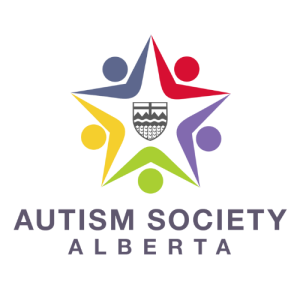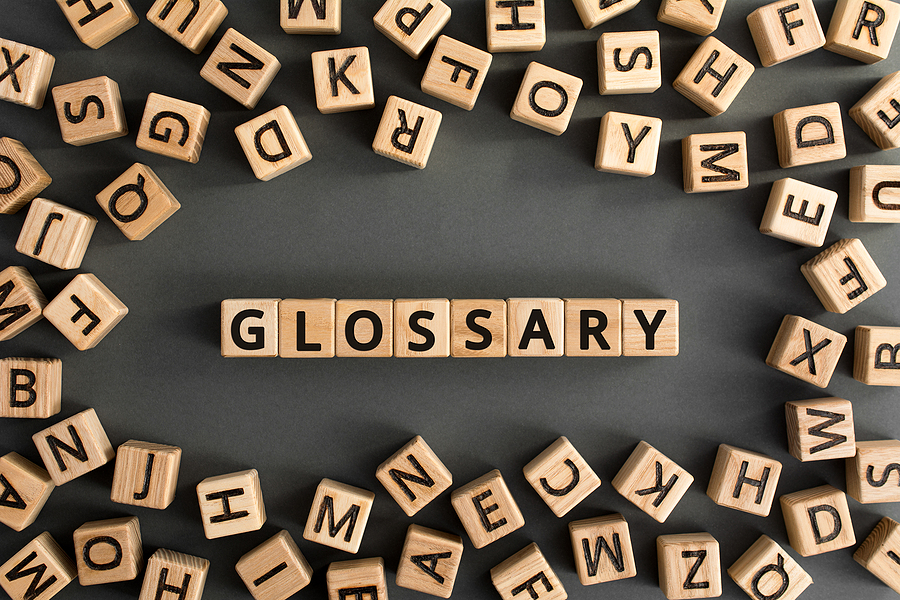Glossary
A glossary of disability-related terms.
Aides
Behavioural Aide – Assistants that provide strategies to support individuals and families with behaviour concerns.
Community Aide – Assistants to help children with disabilities to integrate and participate in community activities.
Developmental Aide – Assistants that help parents in addressing and managing their child’s needs and/or to generalize skills and strategies across the child’s natural environments.
Educational Assistant (EA) – Assistants in the school to help children with disabilities learn and function successfully in the classroom.
Personal Aide – Assistants to help children with disabilities with personal hygiene and medical care.
Government Funding
Alberta Aids to Daily LIving (AADL) – AADL helps Albertans with a long-term disability, chronic or terminal illness to pay for basic medical equipment and supplies.
Assured Income for the Severely Handicapped (AISH) – Financial and health benefits for eligible Albertans with a permanent medical condition that prevents them from earning a living.
Disability Application Processing (DAP) – A centralized team that processes all PDD and FSCD applications and determines eligibility.
Family Managed Services (FMS) – Family Managed Services (FMS) allows for an individual, their family or a person close to the individual to manage the delivery of services to the individual by hiring staff directly or by obtaining supports privately.
Family Support for Children with Disabilities (FSCD) – A government program (delivered in the community and at home) that provides funding for families with children (aged 0-18) with disabilities, to help with the extraordinary cost of raising a child with disabilities. There are two categories of FSCD services: Family Support Services, or FSS and Child Focused Services, or CFS.
- Child Focused Services (CFS) – Child Focused Services build on Family Support Services and offer supports to help families manage a disability that significantly limits the child’s ability to function in normal daily living. A child must have a confirmed diagnosis in order to be considered for Child Focused Services and additional assessment information must indicate the need for Child Focused Services. The type of assessment information required varies among the services
- Family Support Services Agreement (FSS) – Family Support Services, or FSS, are available to all children and families who are eligible for the FSCD program. FSS may include respite, individual and/or family counseling, medical appointment support, and clothing and footwear allowance.
Online Claims Reimbursement (OCR) – The portal used by FSCD and PDD to claim expenses incurred that are under FSCD or PDD contract.
Persons with Developmental Disabilities (PDD) – PDD helps adults with developmental disabilities to live as independently as possible in their community by helping with planning and providing services; i.e. home living supports, respite services, community access supports, employment supports, and specialized supports from experts.
Program Unit Funding (PUF) – A government program provided to approved Early Childhood Services (ECS) operators for children with severe disabilities who require additional support beyond that offered in a regular ECS program. For ages 2 years, 8 months, up to age 6.
Respite – Temporary relief for caregivers and families from the total care and supervisory demands of the child by way of a caregiver who provides support and supervision, either in the family home or outside the family home during non academic programming hours.
Specialized Services (SS) – Direct support for children and support to the family to address critical areas of need in 2 or more areas, including: behavior, communication and socialization skills, cognitive abilities, physical and motor development, self-help and adaptive functioning.
School Terms
Classroom Support Teacher (CST)/Learning Assistance Coordinator (LAC) – The key person on the school learning team to assist with all elements leading to furthering inclusive opportunities for all students in the school.
Mainstreaming – Term used to describe the integration of children with special needs into regular classrooms for part of the school day. The remainder of the day is spent in a special education classroom.
Plans for Students – Written commitments of intent by education teams to ensure appropriate planning for exceptional students is implemented in the classroom. Below are different names for them:
IEP – Individual Education Plan
IPP – Individualized Program Plan
ISP – Individual Service Plan
PIP – Pyramids of Intervention Plans
Taxes and Finances
Alberta Child and Family Benefit (ACFB) – A tax-free amount paid to lower and middle-income families that have children under 18 years of age
Canada Caregiver Credit (CCC) – A non-refundable tax credit that may be available to one who supports a spouse or common-law partner, or a dependent with a physical or mental impairment.
Child Disability Benefit (CDB) – A tax-free monthly payment made to families who care for a child under age 18 with a severe and prolonged impairment in physical or mental functions.
Disability Tax Credit (DTC) and Child Disability Benefit (CDB) – Tax credits associated with disability from the federal government.
Registered Disability Savings Plan (RDSP) – A savings plan intended to help parents and others save for the long-term financial security of a person who is eligible for the Disability Tax Credit (DTC).
Residential Access Modification Program (RAMP) – Grants for low income Albertans with mobility challenges to modify their home.
Therapists
Therapies can be paid for through specialized services (though FSCD), through the school if the child qualifies, through work extended benefits, or out of pocket.
Occupational Therapist(OT) – Therapists that help individuals improve skills needed for daily living & working. May include Fine motor skills (holding cutlery, pencils etc.), gross motor skills, eating, and sensory processing.
Physical Therapist (PT) – Therapists that help individuals improve physical movement and strength. This may include gross motor skills such as walking, biking etc.
Speech-Language Pathologist (SLP) – Therapists that help individuals to improve speaking and communication skills.
Psychologist – Therapists that help individuals improve mental health. They cannot prescribe medications. Psychologists also do assessments.
Psychiatrist – Doctors that help individuals improve mental health. They are able to prescribe medications.
Multidisciplinary Team (MDT) – A team of health professionals (OT, SLP, PT and Psych) that review information about a child with a disability and make recommendations about what types of therapy and how much is needed.
Other Terms
Accommodations – Changes that allow a person with a disability to participate fully in an activity. Examples include, extended time, different test format, and alterations to a classroom or workplace.
Augmentative and Alternative Communication (AAC) – Communication using pictures, symbols or voice output devices to augment or act as an alternative to an individual’s current or previous communication.
Autism Diagnostic Observation Schedule (ADOS) – A standardized diagnostic test used to diagnose and assess autism.
Behavior Intervention Plan (BIP) – A ‘special education’ term that describes the written plan used to address problem behavior that includes positive behavioral interventions, strategies and support. It may include program modifications and supplementary aids and services.
Emotional Regulation – The ability to manage one’s own emotional state and respond to a given situation.
Executive Functioning – A set of skills needed for prioritizing, organizing and completing tasks, especially when dealing with timelines, unexpected events, problems, and/or new challenges.
Expressive Language – One’s ability to communicate their thoughts and feelings through words, gestures, writing, signs, and/or symbols (including the use of an AAC).
Fine Motor Skills – Skills involving fine (small) physical motor skills of the fingers and hands.
Functional Behaviour Assessment (FBA) – An examination of the function of an individual’s behaviour in an attempt to develop strategies to alter the behaviour. FBA is often utilized with students with ASD.
Gross Motor Skills – Skills involving gross (large) physical motor skills.
Guardianship – Guardianship involves the legal responsibility of an individual to make personal decisions (e.g. living arrangements, medical care, employment, education) on behalf of a person who is not capable of making decisions for themselves.
Inclusion – A term used to describe support, services, advocacy or opportunities that place individuals with disabilities in general settings in communities, education classrooms, employment, etc.
Intensive Behavioural Intervention (IBI) – A program of instruction for younger children diagnosed with autism spectrum disorders (ASD). IBI is based on the Applied Behaviour Analysis (ABA) approach, and involves twenty to forty hours per week of intervention by a trained therapist to address skills deficits to develop more positive behaviour.
Listening Comprehension – The receptive processing of oral information.
Modifications – Changes to a target skill or a learning outcome. They often reduce learning expectations or affect the content in such a way that what is being taught or tested is fundamentally changed.
Receptive Language – The understanding of information provided, which can be presented in a variety of ways such as sounds and words; movement and gestures; writing, signs, and symbols.
Self-Regulation – The ability to recognize and understand your emotions and thoughts, and then control or adjust your responses using appropriate behaviour for a given situation.
Sensory Integration – This refers to the brain’s ability to take in information from the senses (internal and external), process and organize that information, and react as needed.
Sensory Processing Disorder – Individuals with sensory processing disorder have problems processing information from the senses. This makes it challenging for them to respond to that information in the right way. The senses include touch, movement, smell, taste, vision, and hearing.
Social Stories – A teaching strategy for individuals to learn appropriate social skills. Social stories are written for students or adults to teach them a needed social skill, and are frequently used with, but not limited to persons who have ASD. Social stories can be read by or to an individual throughout the day to reinforce the pro-social behaviour. Social stories are also known as social narratives.
Social Skills – The skills needed to interact socially. Examples include communication, empathy, turn-taking, cooperation, and listening.
Transition Plans – Transition plans are a required component of Individual Education Plans (IEPs), and can be utilized for students to help them cope with change. This also refers to other life transition planning, such as moving from childhood to adulthood, starting employment, moving to a new home, or becoming a senior citizen.
Trusteeship – Trusteeship involves the legal responsibility of an individual to make decisions regarding financial affairs (e.g. property, money management, investments, tax returns, bill payment) on behalf of a person who is not capable of making decisions for themselves.
Wechsler Intelligence Scale for Children, Fourth Edition (WISC-iv) – A commonly administered cognitive assessment, performed by psychologists to determine intellectual functioning. A Full Scale Intelligence Quotient (FSIQ) or General Ability Index (GAI) is determined based on subtests. (“Psych Ed”).





